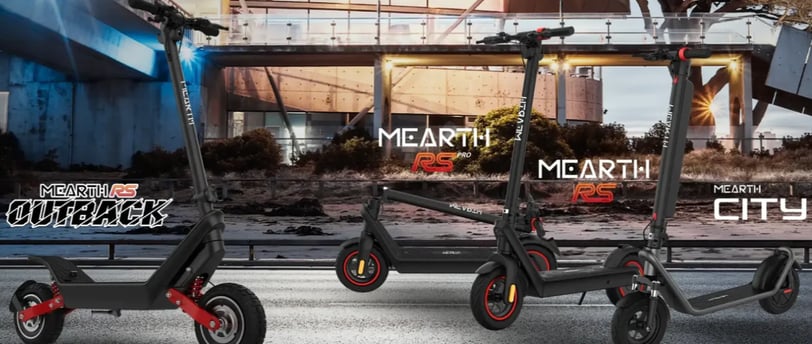Mearth's Expansion: An Australian E-Scooter Brand Takes on New Zealand
Mearth, an Australian electric scooter brand, is expanding into New Zealand, aiming to reshape the local micromobility market. The company is leveraging its design expertise and launching a dedicated New Zealand website to cater to local consumers. Mearth's product lineup includes the S, RS, and GTS Series, designed for different user needs. The brand emphasizes its Australian design, built for Australasian conditions, and is committed to innovation with 2023 model updates. Mearth is using both traditional and digital marketing strategies to establish itself in New Zealand, despite challenges like local regulations and competition. The expansion aligns with New Zealand's growing interest in sustainable transportation.
11/11/20243 min read


Mearth's Expansion: An Australian E-Scooter Brand Takes on New Zealand
In a bold move that's set to shake up New Zealand's electric scooter market, Australian brand Mearth has recently expanded its operations across the Tasman. This expansion marks a significant step for the company, bringing its range of electric scooters to Kiwi consumers and potentially reshaping the local micromobility landscape.
Mearth, founded in Australia in 2017, has quickly established itself as a pioneer in the electric scooter industry down under. Now, the company is looking to replicate its success in New Zealand, leveraging its Australian design expertise and adapting to the unique needs of the Kiwi market.
The company's entry strategy into New Zealand is multifaceted and well-considered. At the forefront is the launch of a dedicated New Zealand website, mearth.co.nz, tailored specifically for local customers. This move demonstrates Mearth's commitment to providing a seamless experience for New Zealand consumers, from browsing to purchase.
To entice early adopters, Mearth has been offering free shipping promotions to New Zealand, a strategy that could significantly lower the barrier to entry for potential customers. This approach not only makes their products more accessible but also shows the company's eagerness to establish a strong foothold in the market.
Mearth's product lineup in New Zealand is diverse, catering to a wide range of users. The Mearth S Series serves as an entry point for urban commuters looking for an efficient, eco-friendly transportation solution. For those seeking more power and features, the Mearth RS Series offers mid-range options. At the top end, the Mearth GTS Series targets enthusiasts and adventure seekers with premium models suitable for both urban and off-road use.
What sets Mearth apart in the crowded e-scooter market is its focus on Australian design. The company emphasizes how its scooters are built to withstand Australasian conditions, a selling point that could resonate well with Kiwi consumers. Additionally, Mearth is not resting on its laurels; the introduction of 2023 model updates across its range demonstrates a commitment to continuous innovation and improvement.
To gain traction in the New Zealand market, Mearth is employing a mix of traditional and digital marketing strategies. The company has been quick to adapt its promotions to the local calendar, offering special deals during New Zealand holidays. Content marketing also plays a crucial role, with the company producing blog posts and social media content that showcase how their scooters can be used in uniquely New Zealand contexts, from urban tours to beach hopping.
However, Mearth's journey in New Zealand is not without challenges. The company will need to navigate local regulations and safety standards, which may differ from those in Australia. Building brand awareness in a new market is another hurdle, especially when competing against established local and international brands.
Despite these challenges, the opportunities for Mearth in New Zealand are significant. The country's growing interest in sustainable transportation aligns well with Mearth's eco-friendly ethos. Moreover, the company's success story in Australia could serve as a powerful narrative to build trust with Kiwi consumers.
As Mearth establishes its presence in New Zealand, its impact on the local electric scooter market could be substantial. The entry of a new player with a strong product lineup may increase competition, potentially driving innovation across the industry and offering New Zealand consumers a wider range of choices.
In conclusion, Mearth's expansion into New Zealand represents an exciting development in the country's electric scooter market. With its range of products designed for Australasian conditions, focused marketing efforts, and commitment to innovation, Mearth has the potential to become a significant player in New Zealand's micromobility sector. As the market evolves, it will be interesting to see how Mearth adapts to local preferences and challenges, and how its presence influences the broader landscape of sustainable urban transportation in New Zealand.
